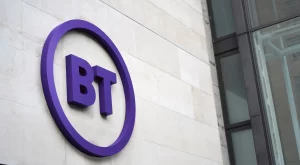BT has become the first major telecoms company to scrap controversial above-inflation price rises for mobile and broadband customers – but not before pushing through a final increase this year.
The owner of mobile operator EE has moved to address the pressure on consumers from rising household costs during the cost of living crisis, after telecoms companies were criticised for increasing bills.
The UK’s largest mobile and broadband companies were accused of fuelling “greedflation” after a Guardian investigation last year found they were pushing through above-inflation price rises.
EE said customers will now be told clearly in “pounds and pence” the planned increase to their monthly bill from next year.
The move comes a day before the official inflation figure for December is revealed, which most operators use to set their mid-contract price increases for customers.
Analysts have estimated that this year’s round of price rises will add almost £500m to consumers’ collective bills from spring.
BT, Vodafone, Virgin Media O2 and TalkTalk all use a version of the mechanism, which usually takes the consumer prices index (CPI) measure of inflation plus about 3.9%.
However, Virgin Media O2 uses the higher figure of retail price inflation (RPI) taken from the rate published for January.
Last year, most mobile and broadband tariffs rose by 14.4%, although Virgin Media O2 customers faced a 17.3% rise, based on December 2022’s CPI figure of 10.5% and January 2023’s RPI at 13.4%.
This year the expectations are that December CPI will be about 4% with January’s RPI forecast to be in the range of 6.5%.
The move, which comes months before a ban from the telecoms regulator Ofcom on companies imposing inflation-linked price rises in the middle of a contract, will put pressure on BT’s rivals that use the practice to follow suit.
“Our annual price change is never an easy conversation to have with customers, particularly when so many people are dealing with the cost of living crisis,” said Marc Allera, chief executive of BT group’s consumer division. “We’re listening, and we’ve taken this on board. [We will] instead offer a clear and simple view of any changes in ‘pounds and pence’.”
BT said that in 2025 mobile customers can expect a monthly increase from £1.50, and broadband customers from £3, depending on the specific contract they are on.
Research by the consumer group Which? Estimates that telecoms firms will generate £488m from this year’s mid-contract prices rises.
The practice is not allowed in other utility sectors such as electricity and gas.
“This is a smart move from BT, anticipating the likely ban on inflation-linked pricing after Ofcom opened a consultation into the controversial practice late last year,” said Kester Mann, director, consumer and connectivity at CCS Insight.
“It gives the operator a short window to promote a clearer and more transparent approach compared to its rivals before rivals follow suit.
Read more:
BT scraps above-inflation price rises for mobile and broadband customers


























